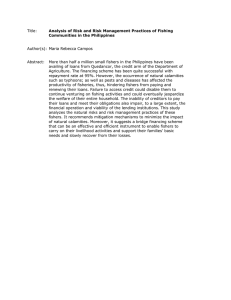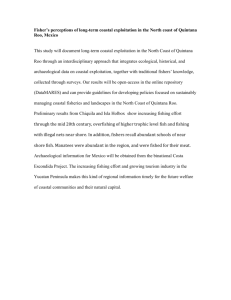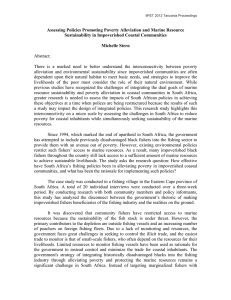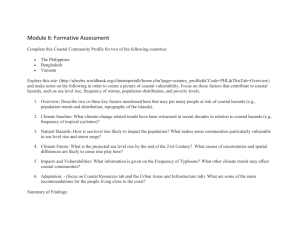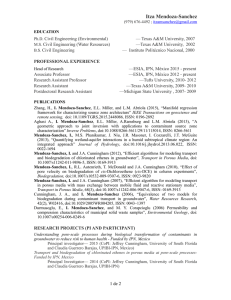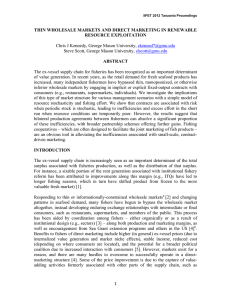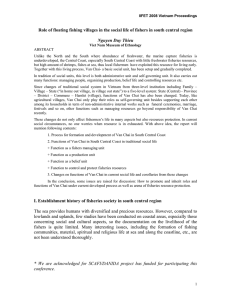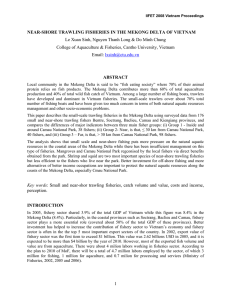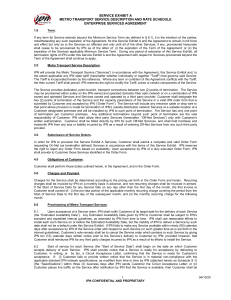Title: Authors: Silvia Salas, CINVESTAV del IPN (Mexico)
advertisement
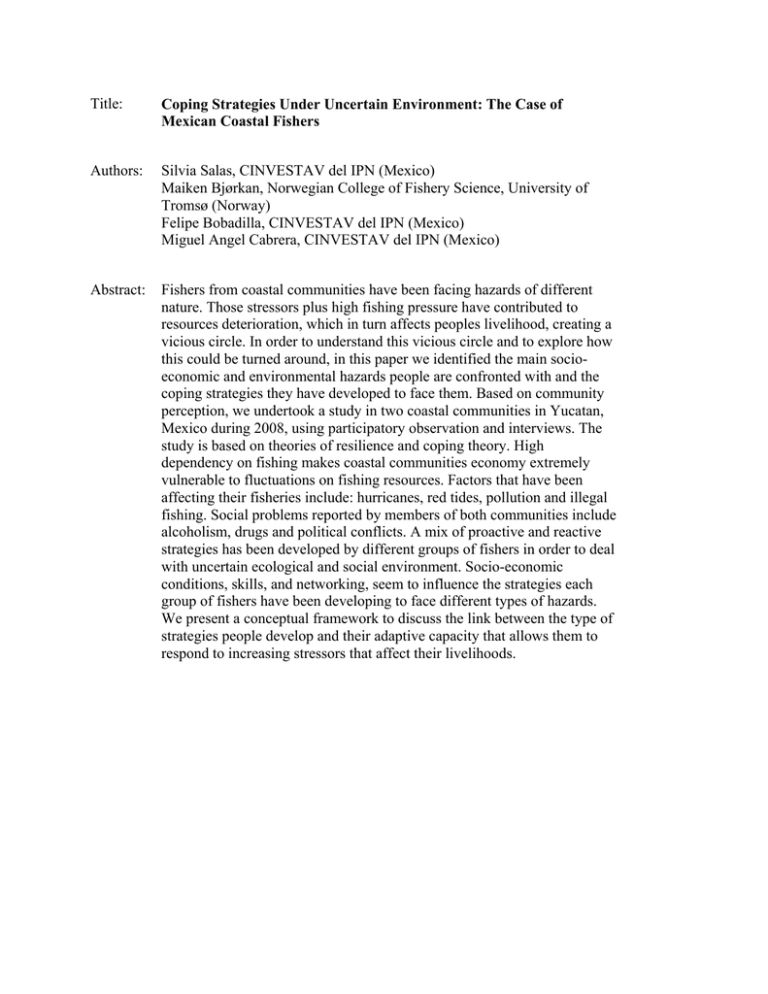
Title: Coping Strategies Under Uncertain Environment: The Case of Mexican Coastal Fishers Authors: Silvia Salas, CINVESTAV del IPN (Mexico) Maiken Bjørkan, Norwegian College of Fishery Science, University of Tromsø (Norway) Felipe Bobadilla, CINVESTAV del IPN (Mexico) Miguel Angel Cabrera, CINVESTAV del IPN (Mexico) Abstract: Fishers from coastal communities have been facing hazards of different nature. Those stressors plus high fishing pressure have contributed to resources deterioration, which in turn affects peoples livelihood, creating a vicious circle. In order to understand this vicious circle and to explore how this could be turned around, in this paper we identified the main socioeconomic and environmental hazards people are confronted with and the coping strategies they have developed to face them. Based on community perception, we undertook a study in two coastal communities in Yucatan, Mexico during 2008, using participatory observation and interviews. The study is based on theories of resilience and coping theory. High dependency on fishing makes coastal communities economy extremely vulnerable to fluctuations on fishing resources. Factors that have been affecting their fisheries include: hurricanes, red tides, pollution and illegal fishing. Social problems reported by members of both communities include alcoholism, drugs and political conflicts. A mix of proactive and reactive strategies has been developed by different groups of fishers in order to deal with uncertain ecological and social environment. Socio-economic conditions, skills, and networking, seem to influence the strategies each group of fishers have been developing to face different types of hazards. We present a conceptual framework to discuss the link between the type of strategies people develop and their adaptive capacity that allows them to respond to increasing stressors that affect their livelihoods.
